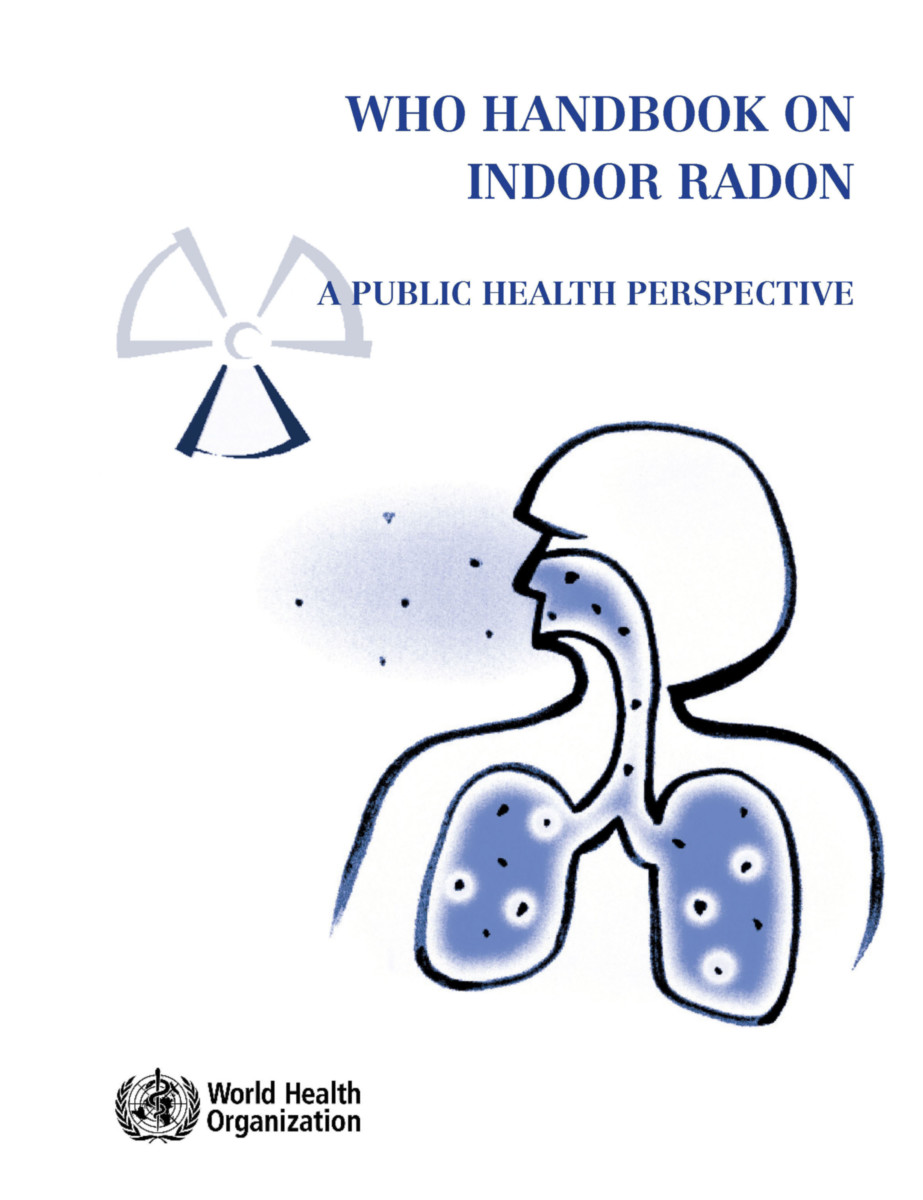WHO Handbook on Indoor Radon
A Public Health Perspective
Paperback
January 2010
9789241547673
More details
- Publisher
World Health Organization - Published
18th January 2010 - ISBN 9789241547673
- Language English
- Pages 108 pp.
- Size 6" x 9.5"
- Images tables & figures
$36.00
The WHO Handbook on Indoor Radon is a key product of the WHO International Radon Project, which was launched in 2005. The Handbook focuses on residential radon exposure from a public health point of view and provides detailed recommendations on reducing health risks from radon and sound policy options for preventing and mitigating radon exposure.
The material in the Handbook reflects the epidemiological evidence that indoor radon exposure is responsible for a substantial number of lung cancers in the general population.
The material is organized into six chapters, each introduced by key messages. Usually, technical terms are defined the first time they are used, and a glossary is also included. Information is provided on the selection of devices to measure radon levels and on procedures for the reliable measurement of these levels. Discussed also are control options for radon in new dwellings, radon reduction in existing dwellings as well as assessment of the costs and benefits of different radon prevention and remedial actions. Also covered are radon risk communication strategies and organization of national radon programs.
This publication is intended for countries planning to develop their national radon programs or extend such activities, as well as for stakeholders involved in radon control such as the construction industry and building professionals.
The overall goal of this Handbook is to provide an up-to-date overview of the major aspects of radon and health. It does not aim to replace existing radiation protection standards, rather it emphasizes issues relevant to the comprehensive planning, implementation and evaluation of national radon programs.
World Health Organization
World Health Organization is a Specialized Agency of the United Nations, charged to act as the world's directing and coordinating authority on questions of human health. It is responsible for providing leadership on global health matters, shaping the health research agenda, setting norms and standards, articulating evidence-based policy options, providing technical support to countries, and monitoring and assessing health trends.


